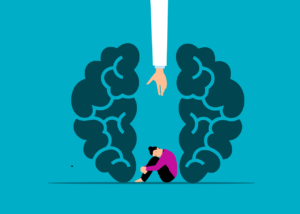Unleashing the Power of Nutrition: A Comprehensive Guide to Cognitive Health
In the quest for cognitive well-being, the role of diet emerges as a critical factor. Can what we eat truly influence the onset and progression of Alzheimer's disease and age-related cognitive decline? The link between diet and cognitive health is a subject of intense scrutiny, and here, we delve into the nuances to empower you with insights that go beyond the ordinary.
Exploring the Impact of Diets on Cognitive Health
The Ripple Effect on Brain Mechanisms
Could the key to preventing Alzheimer's lie in our daily meals? Emerging studies propose a fascinating connection between diet and biological mechanisms that underlie Alzheimer's, such as oxidative stress and inflammation. A well-crafted diet might not only provide anti-inflammatory and antioxidant properties but also inhibit beta-amyloid deposits associated with Alzheimer's. Understanding this intricate dance between our diet and the intricate workings of our brain is crucial.
Beyond Direct Impact: Indirect Influences on Risk Factors
Our diets may not only affect Alzheimer's directly but also indirectly through the modulation of risk factors like diabetes, obesity, and heart disease. The Western diet, characterized by higher risks of cardiovascular disease, might contribute to accelerated brain aging. Furthermore, a burgeoning area of research explores the interplay between gut microbes and the processes leading to Alzheimer's, emphasizing the interconnectedness of diet, physical activity, and brain health.
Decoding the Mediterranean and MIND Diets
Two Diets on the Horizon
Before embarking on any dietary journey, consulting with a healthcare provider is paramount. However, two diets have garnered attention in the realm of cognitive health: the Mediterranean diet and the MIND diet. The former champions fruits, vegetables, whole grains, and unsaturated fats, while the latter, a hybrid of Mediterranean and DASH, adds a specific focus on berries and green leafy vegetables. Although evidence is mixed, some studies suggest these diets might reduce the risk of dementia compared to the Western-style diet.

Navigating Through Contradictions
While observational studies hint at the potential benefits of these diets, a recent clinical trial with 600 older adults yielded modest cognitive improvements, challenging previous notions. Yet, a deeper dive into the evidence reveals promising observations, including reduced Alzheimer's risk, slower cognitive decline, and less evidence of Alzheimer's pathologies in those adhering closely to these diets.
Individual Foods and Their Cognitive Impact
The Quest for Cognitive Elixirs
Various foods, from blueberries to leafy greens and curcumin in turmeric, have been scrutinized for their potential cognitive benefits. While promising, current evidence doesn't definitively link specific foods to preventing Alzheimer's or age-related cognitive decline. Green tea's molecule, for instance, shows potential in breaking apart Alzheimer's-related protein tangles, sparking new avenues for drug development.
Vitamins and Supplements: The Enigma Persists

Despite ongoing research into vitamins B and E, gingko biloba, and omega-3 fatty acids, no supplement has proven its mettle in preventing Alzheimer's conclusively. While some studies hint at potential benefits, the overall evidence remains weak. Multivitamins show promise in memory test scores, but the landscape is rife with uncertainties, urging a cautious approach.
Unraveling the Gut-Brain Connection
The Microbial Symphony
An emerging frontier in cognitive health explores the intricate link between the gut microbiome and the brain. Aging, diet, and the environment may reshape this connection, impacting cognitive health. Ongoing investigations seek to unveil this complex interplay, offering potential insights into Alzheimer's prevention.
Ongoing Scientific Odyssey: What Lies Ahead
Beyond Diets: The Scientific Canvas
Scientific exploration expands beyond established diets. The ketogenic diet, intermittent fasting, and caloric restriction emerge as potential influencers of cognitive health. Preliminary studies suggest that a ketogenic diet enhances brain cell function, offering a glimmer of hope. As the scientific community probes further, clinical trials on therapeutic diets, enhanced Mediterranean diets, and multicultural healthy diets seek to unravel the intricacies of diet-cognition connections.
Seeking Answers Through Clinical Trials
Several clinical trials are actively recruiting participants to uncover the impact of dietary interventions on cognitive health. From the ketogenic diet's role in Alzheimer's to exploring anti-inflammatory diets in multicultural populations, these trials aim to provide tangible insights. Stay informed and consider joining a trial to contribute to the ongoing pursuit of cognitive health knowledge.
Resources for In-Depth Understanding
Staying Informed
For those eager to look deeper into the nexus of diet and cognitive health, a wealth of resources awaits. The National Center for Complementary and Integrative Health and the U.S. Food and Drug Administration provide valuable insights into dietary supplements and their role in Alzheimer's prevention. Stay informed, stay empowered.
Bottom line
In the labyrinth of diet and cognitive health, our journey has touched upon the profound impact of nutrition on the brain. From the Mediterranean diet to individual foods, from vitamins to the gut-brain connection, the interplay is intricate. As science advances, the quest for preventing Alzheimer's and age-related cognitive decline continues. Stay vigilant, stay curious, and embrace the evolving landscape of knowledge on the road to cognitive well-being.






